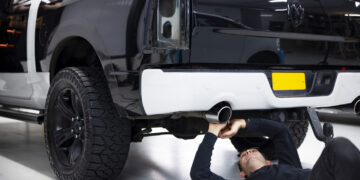Gas leaks are a serious safety hazard that can lead to devastating consequences such as explosions, fires, carbon monoxide poisoning, and even loss of life. Natural gas and LPG (liquefied petroleum gas) are commonly used in Australian homes for heating, cooking, and hot water, but if not handled properly, they pose significant risks. Preventing gas leaks requires a combination of awareness, regular maintenance, and professional inspections. This guide explains practical steps you can take to safeguard your home, alongside the importance of expert Melbourne leak detection services.
Understanding the Dangers of Gas Leaks
Gas leaks are dangerous because:
- Explosions and Fires: Escaping gas can accumulate in enclosed spaces and ignite with the smallest spark.
- Carbon Monoxide Poisoning: Incomplete combustion of gas produces carbon monoxide (CO), a colourless, odourless, and deadly gas.
- Asphyxiation: High concentrations of natural gas can displace oxygen, leading to suffocation.
Recognising these risks highlights why prevention and early detection are critical.
Practical Ways to Prevent Gas Leaks in Your Home
1. Schedule Regular Appliance Inspections and Maintenance
Gas appliances such as stoves, ovens, heaters, and hot water systems should be serviced regularly by licensed professionals.
- Annual Safety Checks: Arrange for qualified technicians to inspect your gas appliances at least once a year.
- Check for Wear and Tear: Components like gas valves, regulators, and hoses should be examined for corrosion, cracks, or damage.
- Clean Burners: Dirty or clogged burners can cause incomplete combustion, increasing the risk of CO production.
- Prompt Repairs: Address any faults or irregularities immediately to prevent leaks.
2. Ensure Proper Installation and Ventilation
Correct installation and ventilation are vital to prevent gas buildup and CO poisoning.
- Use Licensed Installers: Always hire accredited gas fitters for installation or modifications.
- Maintain Ventilation: Ensure rooms with gas appliances have adequate airflow; never block vents or air bricks.
- Install Carbon Monoxide Detectors: Place detectors near sleeping areas and gas appliances. Test them regularly and replace batteries annually.
- Avoid Using Gas Appliances for Heating: Never use ovens or stoves as space heaters; they are not designed for this and can emit dangerous gases.
3. Protect and Maintain Gas Lines and Connections
Gas supply lines must be handled carefully to avoid leaks.
- Inspect Visible Pipes: Regularly check exposed gas pipes for signs of corrosion, rust, or damage.
- Secure Connections: Ensure all fittings and connections are tight and leak-free.
- Avoid DIY Repairs: Never attempt to repair gas lines yourself; always engage professionals.
- Be Cautious When Digging: Contact local utility services before any excavation or landscaping to avoid damaging underground gas lines.
4. Install Gas Leak Detectors for Early Warning
Gas leak detectors provide an extra layer of safety by alerting you to the presence of gas before it reaches dangerous levels.
- Choose Certified Detectors: Look for detectors approved by Australian safety standards.
- Strategic Placement: Install detectors near gas appliances, in kitchens, laundry rooms, and near gas meters.
- Regular Testing: Test detectors monthly and replace units every 5-7 years or as recommended.
5. Educate Your Household on Gas Leak Signs and Emergency Procedures
Awareness is key to early detection and response.
- Recognise the Smell: Natural gas is odourless but is mixed with mercaptan, which smells like rotten eggs or sulphur.
- Listen for Sounds: A hissing or whistling noise near gas lines can indicate a leak.
- Notice Physical Symptoms: Headaches, dizziness, nausea, or flu-like symptoms can signal CO exposure.
- Spot Environmental Clues: Dead or dying plants near underground gas lines may indicate a leak.
- Emergency Response: If you suspect a leak, evacuate immediately, avoid using electrical devices, and call emergency services or your gas provider from a safe location.
The Critical Role of Professional Melbourne Leak Detection Services
Even with diligent prevention, gas leaks can still occur due to hidden faults or ageing infrastructure. Professional melbourne leak detection services are indispensable for:
- Accurate Leak Location: Using advanced technology such as acoustic sensors, thermal imaging, and tracer gas detection to find leaks without damaging your property.
- Non-Invasive Methods: Minimising disruption by avoiding unnecessary drilling or excavation.
- Comprehensive Reporting: Providing detailed assessments and recommendations for repairs.
- Emergency Response: Offering 24/7 services to quickly address urgent leaks.
Why Choose MGR Leak Detection?
MGR Leak Detection is a trusted Australian company specialising in expert water and gas leak detection services. Their team uses cutting-edge, non-destructive technologies to detect leaks quickly and accurately, ensuring your home’s safety without unnecessary damage.
With extensive experience and a commitment to customer safety, MGR Leak Detection offers:
- Professional inspections and leak detection across Melbourne and surrounding areas.
- Prompt and reliable emergency leak detection and repair referrals.
- Transparent communication and detailed reporting.
- Preventative maintenance advice to help you avoid future leaks.
Conclusion
Preventing gas leaks in your home requires a combination of regular maintenance, proper installation, vigilant monitoring, and professional inspections. Installing gas and carbon monoxide detectors, maintaining appliances, and educating your household on leak signs are essential steps to protect your family.
For peace of mind and expert assistance, rely on professional Melbourne leak detection services like those provided by MGR Leak Detection. Their advanced technology and experienced technicians ensure early leak detection, safeguarding your home and loved ones from the dangers of gas leaks.
Contact MGR Leak Detection today to schedule an inspection or learn more about how to keep your home safe from gas leaks.


















